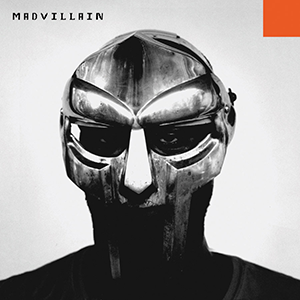
Smack in the middle of the music businesses’ two peak release-heavy periods—generally September-October and March-April—the holiday season is, aside from the occasional surprise, typically quiet in terms of new music.
Yet the past five weeks or so have seen a startling outpouring of it—from Run the Jewels’ surprise release of their endlessly anticipated “Run the Jewels 3” on Christmas Eve, to Nine Inch Nails’ early release of their “Not the Actual Events” EP on Dec. 22.
While those high-profile offerings are certainly worth a look, there was also a great deal of new music that seemed to fall under the radar of most. From Grouper’s magnificent “Paradise Valley” single to ambient godfather Brian Eno’s return to the genre, here are a couple of those winter break releases you may have missed.
Grouper – “Paradise Valley” 7”
With Liz Harris—who has been writing surreal, impenetrable folk songs under the pseudonym Grouper for over a decade now—things are never straightforward. Online rumblings of an imminent 7” single from the Oregon-based artist had begun in November, but Harris, whose online presence is—to put it generously—minimal, offered little in the way of corroboration of these rumors.
This caginess is a sizable part of what made “Paradise Valley,” which appeared suddenly on Dec. 21, initially so rewarding. The other part, of course, was the music itself. Containing two of Harris’ most dazzling compositions to date, “Paradise Valley” is disappointing only in its brevity, easily clearing the formidably high bar of Harris’ most recent release, 2014’s “Ruins.”
A theme of purification runs through the single. Harris opens its A-side, “Headache,” by singing “my mother once told me/she walked into the ocean” over gentle but assertive guitar strums. She whispers “I’m clean now” to start the B-side of the same name, which is built over a gorgeous riff that washes over the listener like a wave.
Harris’ return to the six-string marks a dramatic, but not unwelcome shift in the scope of her art from “Ruins.” On that record, she utilized the piano to create a sense of remarkable intimacy, making the listener feel as if they alone were watching Harris perform the songs in her house.
With her invocations of the horizon and ocean in “Headache” and hypnotic fingerpicking on “I’m Clean Now,” Harris presents something that is only constrained by the listener’s imagination. Though it stands as probably her most accessible work to date (if you’re willing to bend your definition of “accessible”), “Paradise Valley” doesn’t sacrifice one ounce of otherworldliness to accommodate a few intelligible lyrics. For Grouper—who has consistently redefined what a pop song can sound like–it’s a tantalizing step into the unknown.
Orchid Mantis – “Flashbulb Memory”
Atlanta musician Thomas Howard, on his Bandcamp page, describes Orchid Mantis as a project of “found sounds, tape collages, and songs about forgetting.” “Flashbulb Memory,” the project’s most fully realized effort to date, manages to pull off something quite rare: an album that actually lives up to its creator’s description.
Its eight tracks merge beautifully hazy sound collages into stratospheric pop songs about leaving people, places and frames of mind behind. Playing out like memories, the various strands of songs like “Everything Always Gets Old” appear suddenly and fade away just as quickly, all blending in to the warm haze of tape hiss that engulfs the entire album.
Though “Flashbulb Memory,” released Dec. 30, goes all in on its lo-fi, found-it-in-your-attic sound collage aesthetic, its more impressive tracks sound more fit for stadiums than bedrooms. In the chorus of “Leaving,” Howard cries “Save me somehow/‘cause I don’t know how/soon you will be/leaving me” over synth swells that wouldn’t sound out of place in “Titanic” and drums that could fill the Grand Canyon.
Even “Leaving” though, takes a backseat in scale to the monumental “Somewhere You’ve Been Before.” Taking the idea of nostalgia and blowing it up to Christopher Nolan-size cinematic proportions, Howard’s voice booms, carrying the song with a grandiose, charismatic authority not seen since perhaps the earliest days of U2.
Though coyly released the day before New Year’s Eve, “Flashbulb Memory” feels like an album that yearns to be explored. Though patchy at times, it’s more expansive moments provoke the kind of catharsis other widescreen “alternative” pop groups (Bastille, fun.) could only dream of creating.
Brian Eno – “Reflection”
A reflection can be virtually anything. Two people can look at the same reflection, and come away with completely different interpretations of what they saw, depending on their mindset. Brian Eno’s “Reflection” is a creation whose purpose is to channel that idea. Though ostensibly a 54-minute soundscape of keyboards, vibraphones and bells, “Reflection” can take on any number of roles.
The instrumentation that bubbles around the surface of “Reflection” defines the piece more than the unceasing drone that lies at its heart. The minimal, immaculately-produced statements that ripple across its surface brilliantly blur the line between major and minor tones. They may seem calming and serene, blending perfectly into the background of your day. Just as easily though, they can throw you off, leaving you feeling unsettled. It seems to completely transform based on the mindset in which you hear it, it’s great illusion being that those differences are all in your head.
“Reflection,” released Jan. 1, is more than just an elusive piece of music though. Alongside the typical album, Eno created a “Reflection” app, which utilizes algorithms to create what Eno describes as an “endless and endlessly changing version of the piece of music.” Through this, not only can the listener interpret the piece as they please, they can change it based on these interpretations.
Though not as sonically immersive as some of Eno’s classic ambient works of the late 70s and early 80s, “Reflection” is groundbreaking as a work of art. Though virtually every piece of music attempts to be relatable to its listener, “Reflection” allows itself to be entirely transformed by the listener. Tranquil enough to serve as background music, but complex enough to engage with on numerous levels, “Reflection” is a fascinating work by a legend who refuses to stop thinking far outside of the box.
Jackson Maxwell can be reached at [email protected] and followed on Twitter at @JMaxwell82.


















